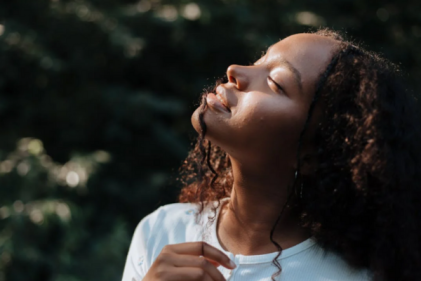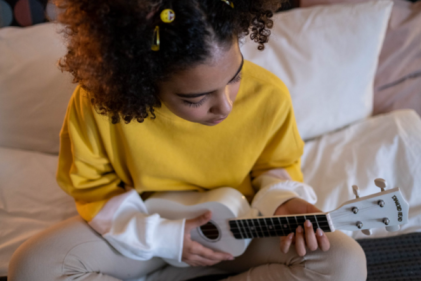Another school year brings more decisions to be made for your child.
But with the recent furore over the safety of the cervical cancer jab, it is becoming more difficult for parents to separate facts from fear.
Hearing that anything could have harmful side-effects for your child will, of course, make you hesitate - but is it just a matter of who can shout louder that should influence your decision?
In a bid to make the HPV debate a little easier to digest, we have put together some facts and interviews with people from both sides of the debate. This should give you a clearer understanding of the issue and help you to make the best decision for your child.
What is HPV?
HPV stands for Human Papilloma Virus and it is one of the most common sexually transmitted infections. The HSE says that more than 80% of Irish women contract HPV, usually in their late teens or 20s. In most cases, the virus clears up on its own and does not have any symptoms. But in some cases, it can lead to genital warts. There are about 200 different kinds of HPV and most are harmless, but some types can cause cancer, such as anal, penile, oral and cervical cancer. Cervical cancer can occur when HPV causes changes in the cervix in women.
70% of all cervical cancers are caused by two types of the HPV virus - HPV16 and HPV18 - these are also responsible for 80% of anal cancers. That's according to the Health Protection Surveillance Centre.
It is important to remember that Ireland has one of the highest cervical-cancer rates in western Europe, with 90 deaths a year.
What is the vaccine?
The HPV vaccine used in the school programme is called Gardasil and it protects against four out of 170 types of the virus. They are numbers 6, 11,16 and 18.
Remember that two of those four strains (16 and 18) account for 70% of cervical cancers.
The idea is that rolling this vaccine out to secondary school pupils will immunise against these harmful types of the virus which could prevent cervical cancer development, and therefore saves lives.
The vaccine is sanctioned and supported by the World Health Organisation. Their most recent study, World Health Organisation (WHO) review of studies, reported that the vaccines had an efficacy rate of between 90% and 100% in preventing HPV infection.
The vaccine can prevent HPV for a number of years after being administered, but do not cure it in existing cases. From September each year, the HSE offers the vaccination to all girls in the 1st year of second level schools.
All girls less than 15 years of age at the first dose require two doses of the HPV vaccine given at least 6 months apart. All girls aged 15 years and older at the first dose require three doses of the HPV vaccine - the first two doses given at least 6 months apart and the third dose given at least three months after the second dose.
Why the debate?
An anti-vaccine campaign called Regret has come to prominence recently and it has caused a media debate over the safety of the vaccine. The group claims it caused illness in 400 Irish teenage girls and young women after they took it.
These include reactions associated with the administering of the vaccine itself (an injection) like fainting, dizziness, headaches, skin rashes, but also include Chronic fatigue, nausea, swollen joints, gastrointestinal problems, drowsiness, menstrual disorders.
It has lead to uptake rates falling dramatically from highs of 87% to lows of 50% over the fears over the safety of the vaccine. Things came to a head recently when the Junior Health Minister, Finian McGrath called for a withdrawal of the vaccine. He has since admitted he 'cocked up' in his handling of the matter and now insists there is “no equivocation” in his present attitude to the HPV vaccine and he is “totally supportive” of the campaign.
Who is right?
We spoke to two women on two different sides of the debate. Both have had cervical cancer.
Carole O'Dwyer was diagnosed with cervical cancer in April. She's undergone two surgeries and is currently halfway through her five-week radiation treatment. She had to have a hysterectomy as part of her treatment. She is 32 years old and says that the hardest part is knowing that she won't be able to carry her own children in the future. Carole says she is really disappointed over the decrease in the number of girls getting the vaccine. She hopes that by speaking out about her story, she can help others to avoid the pain and hardship she has endured over the last few months.
"HPV is so easy to get and all the studies show that this vaccine saves lives. The HSE needs to do more to make information available to young people and their parents. Arrange talks in schools, reassure the parents. Millions of young people worldwide have now been protected from this horrible disease. I understand people don't want to put their child at risk with any adverse side-effects - but the risk of them dying from cervical cancer is much higher. There are risks with everything. Believe me, you do not want your child to suffer as I have"
But Tracie disagrees.
She is opposed to giving young girls the vaccine, despite having had cervical cancer three times and ovarian once. She said that she doesn't want her 12-year-old daughter to get the jab because she is too young, and she fears that she may not get her regular smears because she feels 'protected'.
"I took medical advice on this. My oncologist explained said are there too many strains to vaccinate against, but vaccination does not stop girls having unprotected sex with men with warts. She is now more likely to get cervical cancer because I have had it but I think having her get checked with regular smears will be protection enough"
However, Tracie does agree that parents and children should have a discussion about it and get as much information as possible before they make a decision.
Arguments
It is no wonder parents are concerned with all the various sides of the debate being bandied about - and no clear leadership from the Government.
Some mums that we spoke to said they felt that a 12-year-old was quite young to get a vaccination that deals with a sexually transmitted virus. However, the National medical advice is that the vaccine works better if it is given to children before their cervix has matured so that girls are protected before adulthood and likely exposure to HPV. Regular smear tests are encouraged once your child is sexually active, but this is mostly to detect abnormalities or even cervical cancer in its early stages.
There are also fears over what is contained in the vaccine. I've heard of many parents who were concerned after reading comments on social media that vaccines contain very poisonous ingredients.
Here at MummyPages, we prefer to read medical studies rather than Facebook comments when it comes to making medical decisions that could have life-changing consequences for our children.
Oxford University explains it a little better too:
"The key ingredient in all vaccines is the active ingredient. This is the part that challenges the immune system so that it makes antibodies that can fight the disease. Apart from this, the main ingredient in vaccines is water. Most injected vaccines contain 0.5 millilitres of liquid, in other words a few drops. All other ingredients weigh a few milligrams (thousandths of a gram) or even less.
Vaccine ingredients can look unfamiliar. However, it is important to remember that many of the substances used in vaccines are found naturally in the body. For example, many vaccines contain salts based on sodium and potassium, which are essential for life. People may think of formaldehyde as a man-made chemical, but in small quantities, it is also found naturally in the bloodstream.
All vaccine ingredients are present in very small quantities, and there is no evidence that any of them cause any harm in these amounts. If you look up some vaccine ingredients on the Internet you may read that they could be harmful, but most of them are present in vaccines in amounts that are completely normal for our bodies. Even common salt (sodium chloride), which is essential for normal functioning of the body, is harmful in large quantities."
This week, new figures from our state medicines watchdog said it received over 1,099 reports of adverse reactions since 2010, after people taken the vaccine. Of these, 650 girls reported that they required medical intervention. The Health Products Regulatory Authority in Ireland has said that this should not be taken as evidence of a causal link and mild reactions to vaccines are to be expected.
We spoke to family GP, Dr. Eleanon Galvin, about some of the medical information that is being discussed. According to the HSE, from 2010, when the vaccinations started here in Ireland - 590,694 doses have been administered to first and sixth-year female secondary school students. This means that just 0.18% of people reported reactions.
"A report of an adverse reaction is only that- a report. Whatever you report will be recorded. Even if there is no link. This is to look at patterns of serious unexplained or unexpected patterns. None have yet emerged."
We asked her about any possible links between chronic fatigue and other illnesses.
"There has been no proven cases of vaccine damage due to HPV vaccine, yet a very vocal extremely small group have managed to plant seeds of doubt and fear amongst other parents. This has led to a decrease in vaccine uptake and will damage the effectiveness of the Cervical cancer vaccine campaign.
As long as there has been vaccines there have been conspiracies. No one wants to take away from the seriousness of having a sick teenager- but there is categorically no link between the vaccine and the many illnesses that have been attributed to it. Unfortunately, teenagers are susceptible to chronic fatigue and other illnesses- but we have seen no rise in them since the introduction of the vaccine.
Let us remember what this is- a vaccine to prevent cervical cancer. Pretty amazing. The holy grail of cancer research. Let us not jeopardise our daughter's health by listening to the wrong information."
Summary
In Australia, which was one of the first countries to introduce HPV vaccine, there has been a decrease of more than 50% in rates of pre-cancer of the cervix over the last ten years.
Over 200 million doses of the HPV vaccine have been given around the world, according to the HSE. No serious side effects in any country can be scientifically attributed to the vaccine.
The WHO stands by it and the European Medicines Agency concluded that there is no causal link between the vaccines and conditions such as complex regional pain syndrome and postural orthostatic tachycardia syndrome. They were pretty plain speaking when it came to its advice:
"The benefits of HPV vaccines continue to outweigh their risks"
Personal
Of course, we are all entitled to hesitate when it comes to our children's health. There is nothing wrong with being suspicious when it comes to putting ANYTHING inside our little ones.
In fact, we should ALL scrutinise and investigate and seek medical advice and inform ourselves. As parents, we have a responsibility to seek valid and correct information on behalf of our children, rather than relying on the opinions of lay people on the Internet.
Get real advice from experts, doctors, professors and health agencies. Then make your decision that you are happy to stand by. That is not to take away from any of the people who feel like they got sick from this vaccine. My heart goes out to those seeing their child unwell. But suspecting your child is sick because of something, is not the same as it being a fact. This is too important an issue to be careless with what we choose to hear.
Everything carries risk - but I'm not prepared to risk my daughter's life on someone else's story. This is the time to separate emotions from scientific research.
I'm choosing to put my faith in the experts.















